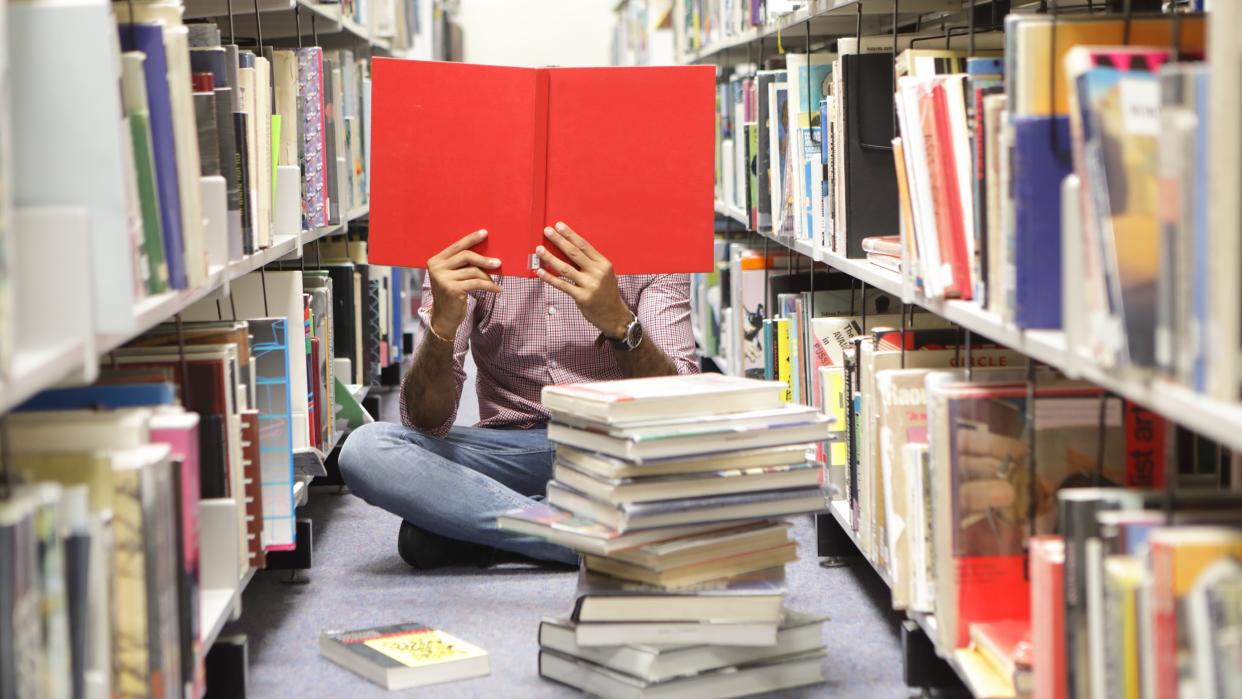Gen Z is bringing back reading

- Oops!Something went wrong.Please try again later.
- Oops!Something went wrong.Please try again later.
Here's a tip for older folks looking to keep up with the latest trends among young people: Go to the library.
It's a "surprising Gen Z plot twist," The Guardian said. Young adults and adolescents — folks born between 1997 and 2012 — are really into reading. Real books, the kind you find on paper. Leading the way: Kaia Gerber, the 22-year-old model-actress daughter of Gen X icon Cindy Crawford, this week launched her own book club. "Books have always been the great love of my life," Gerber said. "Reading is so sexy."
But Gen Z readers don't need an influencer to embrace books. At The Conversation, Portland State University's Kathi Inman Berens and Rachel Noorda said their research found that "Gen Zers and millennials prefer books in print over e-books and audiobooks" which has manifested in an "unlikely love affair with their local libraries." Why? Maybe it's because libraries are "free from the insipid creep of commercialism." There are no ads and fees: You simply can check out a book for free.
That's heartening news for libraries facing budget cuts and book bans, Lora Kelly said at The Atlantic. Even Gen Z respondents who don't identify as readers still like hanging out at the library, looking for "events, classes, or simply to find community." That's because modern libraries offer more than just reading material: "They are also about providing people with a 'third place' for programming, services, and socializing."
Instagram and BookTok
Technology is a big part of this story. The Wall Street Journal said Gerber's Instagram page is where "hundreds of thousands" of people have watched her interviews "with bold-faced names and authors like Lena Dunham, Jane Fonda and Emily Ratajkowski." Her new, "more formal" online book club — named Library Science — will feature even more author interviews. "Most other book clubs are geared towards millennials and moms," said one publishing executive. "But younger people read a lot too, and having a peer with great literary taste making recommendations" is still relatively rare.
Is it? One phenomenon to come out of the COVID lockdown in 2020 was BookTok, a corner of TikTok where young readers "go to find a new series, share their opinions and connect with authors," Saige Steele said at The Lumberjack, the student newspaper at Northern Arizona University. The subculture has created bestsellers and racked up billions of page views for its host platform, a "positive and healthy niche that has brought back the beloved pastime of relaxing with a good story."
But some critics say BookTok has "commodified reading," Greta Patterson said at Colorado College's The Catalyst. Influencers can turn some books into hits, or ignore worthy works that become "an instant flop." Technology has thus transformed the act of reading into just another version of "fast fashion." "The rise of influencers has increased overconsumption in every aspect of the world," Patterson said, "reading being no exception."
Socializing at 'reading parties'
Reading can be a solitary act, but it doesn't have to be. New York has seen the rise of "reading parties," Molly Young said at The New York Times. The events take place "on rooftops, in parks and at bars" where people show up, spend some time knocking out a few pages, and then "chat with strangers about what you've just read." It's a great way to spend time with people without the distractions of a smartphone, said the founder of one event. "I got an hour of reading done and I hung out with some of my best friends, which I'd wanted to do anyway," he said.
You know who loves these trends? Booksellers. "There's been all of this innovation and change, but it has reinforced reading and reinforced reading real books," said James Daunt, who oversees Barnes & Noble and British bookseller Waterstones. The Independent said that the book business was hurting a decade ago, thanks to Amazon and the rise of e-readers. Now, Daunt said, "if you look at what young people are doing now — they're reading proper books, which is fantastic."

